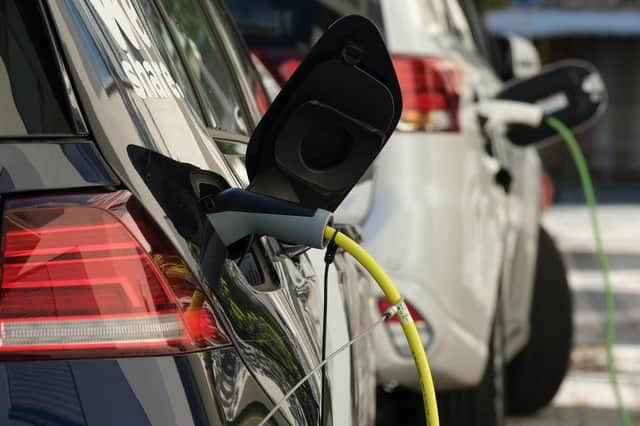Electric vehicle charging strategy in Bedford aims to help as many people as possible to make the switch


Bedford Borough Council’s proposed electric vehicle (EV) charging strategy aims to remove charging as a barrier to EV uptake for “as many people as possible”.
The Climate Change Committee (March 18) heard that the strategy, which was approved for consultation by the Executive earlier in March, will incorporate delivery of chargepoints under the Local Electric Vehicle Infrastructure (LEVI) scheme.
Advertisement
Hide AdAdvertisement
Hide AdThis is making just over £1million of capital funding available to the council.
Jon Shortland, chief officer for planning, infrastructure and economic growth, said: “[The] LEVI scheme is making just over a million pounds of capital funding available to the council to install chargepoints, aimed mainly at residents without off-street parking who cannot therefore install their own charge points to charge their cars at home.
“The LEVI scheme is also providing funding to employ two dedicated officers to deliver the charge points.
“They will consult extensively with residents on the exact sighting of these new charge points.”
Advertisement
Hide AdAdvertisement
Hide AdThe committee heard that EV usage and ownership in Bedford is predicted to grow from 2.5 per cent in 2023 to between 12 and 17 per cent by the end of the proposed strategy period in 2027.
“Without action those people who would otherwise switch to using EVs will be unable to do so, whilst others may adopt undesirable charging practices such as trailing cables across footways, ” Mr Shortland said.
“There are currently 177 public chargepoints in the borough, 119 of those have been provided by the council.
“We will aim to ensure that as many householders as possible who lack off-street parking are within a five minute walk of the suitable charging infrastructure.
“Provision will predominantly be public on-street charge points for residential use, but we will also look at communal off-road parking in the form of parking courts.”